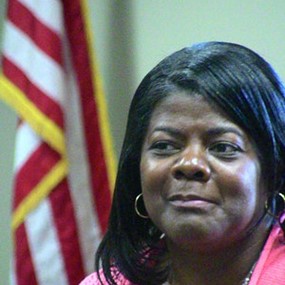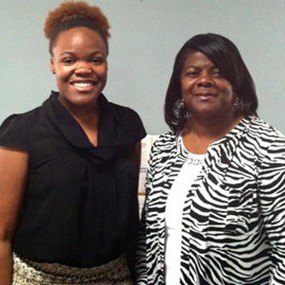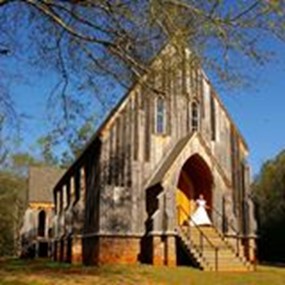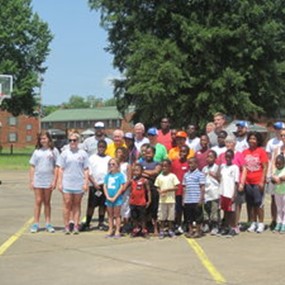Auburn Creed Connects to Summer in Selma
I believe that this is a practical world and that I can count only on what I earn. Therefore, I believe in work, hard work…
The Living Democracy experience requires a lot from participants – time, energy, thought, patience, creativity, commitment, and definitely hard work.
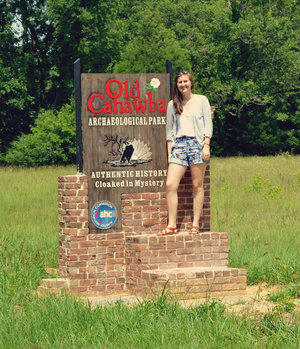
I went into my first few weeks in Selma expecting to work hard. I knew that moving into a new community and getting my bearings would take work, as would developing relationships with my community partners. I also had a project to work on with the staff of Old Cahawba – expanding civic tourism at the historical site was going to take resourcefulness, a bit of good luck, and effort.
But I wasn’t the only one working hard. It seemed that everywhere I went in Selma, I met another person who was devoting themselves to making life in Dallas County better.
I stand amazed by the creativity and diligence I saw from people like Callie Nelson, Sheryl Smedley, and my community partner Linda Derry. These ladies never stop looking for the next way to connect neighbors, solve problems, and tell the rest of Alabama how amazing Dallas County is.
Others I met in Selma are actively engaged in reviving the downtown through the arts, protecting the city’s historic buildings, improving education, beautifying the city, telling Selma’s historic story, helping families out of poverty, and so much more.
While Selma is not immune to the in-fighting and finger pointing that sometimes pervades so many of our communities, the city is filled with people who want to see life improve, for them and their neighbors. People in Selma really care what happens to their city. Opinions are sometimes strong, which can make disagreements stronger, but many people in Selma are actually doing things and working for change. What an experience it was to see these change-makers at work in Selma this summer.
I believe in education, which gives me the knowledge to work wisely and trains my mind and my hands to work skillfully…
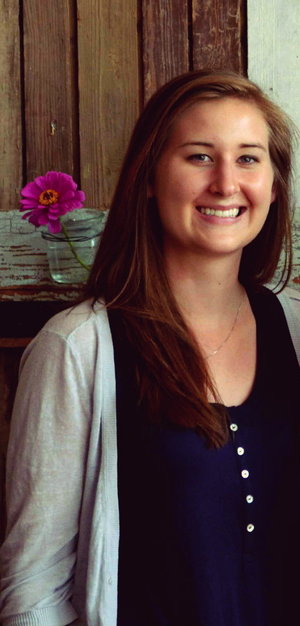
At the start of my Living Democracy experience, I said that I was excited to be a part of the program because it was a chance for a “real education”. I was thrilled by the prospect of living and learning in a real community amongst life’s real triumphs and challenges – I was getting ready to go into a civic classroom like no other. probably read through a dozen times now. This civic survival and community understanding are big skills that the Living Democracy experience taught me. Getting to know the ins and outs of a community can take a lifetime, but my ten weeks let me scratch the surface.
Well, I was not disappointed. Living Democracy challenged me to connect with people and accomplish tasks in a new place using only what I had around me. Sounds sort of like “Survivor”, right.
To work through my projects at Old Cahawba, I needed to learn many new things about watersports equipment, river levels, Black Belt businesses, “civic tourism”, safety waivers, many state and private organizations, and much more.
And my time getting to know Selma called for just as much exploration and learning.
I was excited to learn about the city’s history, which I certainly did. I could probably give a tour of the historic district now. See, I used a Selma driving tour magazine as a placemat for my kitchen table and I’ve probably read through a dozen times now. I was also ready to learn about what made Selma great and what was causing struggles. Living Democracy prepared me to listen to local citizens to get these answers, too. They were the experts, and I was the student.
Much of the time, the only thing I initially had to talk about with people was Selma. The community was a topic I had a little information about, but something other citizens could write a book about. I found that you can really learn about a place - what to see in town, where to get good bar-b-que, what happened there 50 years ago, and who to befriend - if you just have an open mind and open ears.
This civic survival and community understanding are big skills that the Living Democracy experience taught me. Getting to know the ins and outs of a community can take a lifetime, but my ten weeks let me scratch the surface.
I read many an article and heard many a story about Selma before I arrived for my summer experience, but living there taught me what the community is really about. Stories about a neighborhood group creating a community walking trail at a local school, or the library having a free kids program every day, or a small church serving lunch to neighborhood kids during the summer, these are the real stories of Selma.
My reading and writing trained my mind to be informed, but my ten weeks of living there trained my hands and heart to be understanding, knowledgeable, and capable.
I believe in the human touch, which cultivates sympathy with my fellow men and mutual helpfulness and brings happiness for all…
One of the most enriching experiences I had this summer happened on the Edmund Pettus Bridge. As an extra in the movie “Selma”, I spent two days walking on and off the bridge with several hundred other extras. The conversations with many of these people were the real highlight of this experience.
People talked about their families and jobs, the usual stuff, but also their hopes for presentday Selma and Alabama, and then stories of the past. Remembrances of racism and community destruction mixed with tales of neighborhood laughter and secret kindnesses. Folks who might have been on opposite ends of the bridge at the original Selma marches shared lunches and offered to give each other rides home at this bridge in 2014.
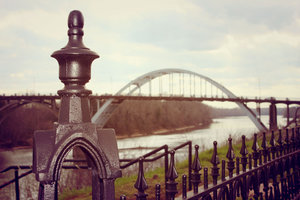
I witnessed a group of people - a community - come together, get to know each other, and get something done, all with empathy and joy during those few days. I saw it as a model of what communities could be if people take time to listen to one another, to work through historic hurts together, and be supportive of the person standing beside them.
Civic work is hard. Making sure democracy works well is hard. Living with neighbors you didn’t choose is hard. But we as Americans are called to be active, and hopefully constructive, citizens in our communities. We may not be able to reach “happiness for all”, but we should work for happiness for more.
The determination, ingenuity, empathy, and hard work I saw in Selma taught me a lot about what this civic work looks like in real life. It is often challenging and uncertain, but working for a better community for all can be a beautiful thing.
And because Auburn men and women believe in these things, I believe in Auburn and love it.
And I believe in Selma and love it, too.
Tags: Selma
